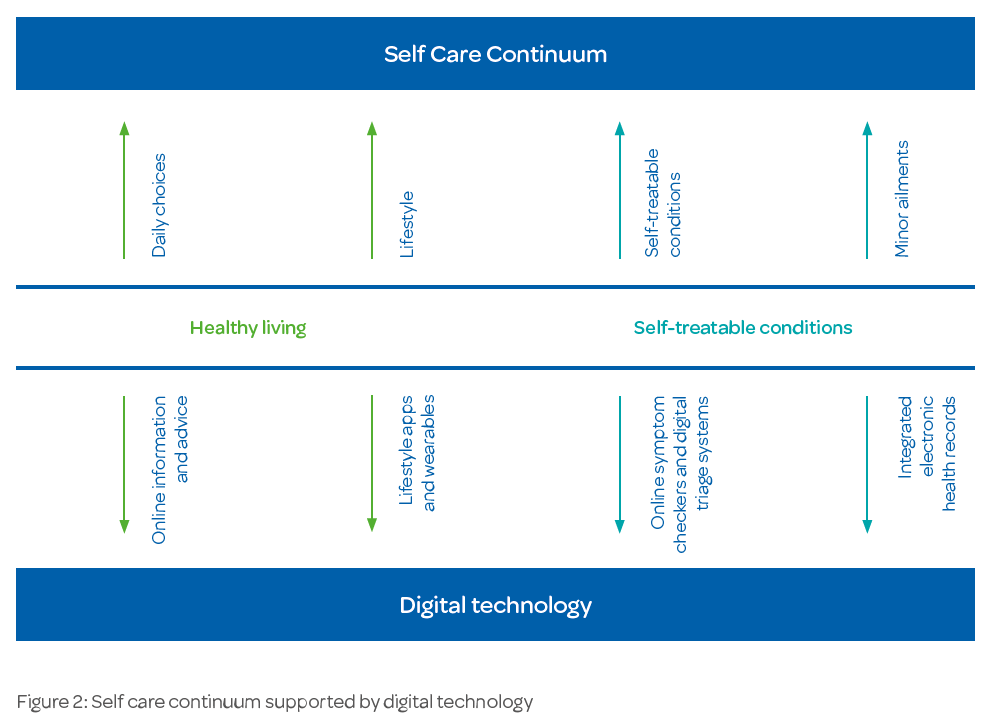Digital technology will play an important role in the future of self care and PAGB is committed to working with the Government and NHS England to support the advancement of self care. In our report, Self care and technology: Harnessing the potential of technology to transform self care, we present case studies from around the world showing how digital technology is already supporting people to manage their own health. We explore how these might be applied to our own health system and suggest policies that would enable digital technology to better support self care, giving people greater control of their own health and reducing pressure on the NHS.
PAGB welcomes the Government’s commitment to invest in digital technology for health. However, discussions on digital technology often focus on how it is improving hospital-based care, enabling greater access to GP services and supporting people with long term conditions. This report explores how digital technology is also supporting the other end of the self care continuum. This includes technology which people already use on a day-to-day basis, that can be harnessed to support self care: online information and advice, lifestyle apps and wearables, online symptom checkers, digital triage and integrated electronic health records.


This report sets out six key recommendations which would enable people to self care and help support the delivery of the ambitions set out in the NHS Long Term Plan, both to help people stay healthy through predictive prevention and to upgrade technology and digitally enabled care across the NHS.
“GP Dr Sarah Jarvis says: “It’s clear that people are increasingly receptive to more digital adaptations to their care pathways. From checking their symptoms on the internet (51%), to tracking their health and wellbeing via a digital device or app (56% use one every day), this research has identified key areas that can be progressed and improved.
“The NHS needs to make it easier for people to access health information, so that they know which health service is right for their needs. I agree with the PAGB recommendation that the NHS website and NHS app should include a section dedicated to self care, with fact sheets and easy to understand videos, helping to improve people’s understanding of self care. Similarly, we would like to see online triage systems directing people based on their symptoms and sending them to pharmacy when appropriate for self-treatable conditions, rather than the GP. Giving pharmacists ‘write’ access to people’s health records would help people to see pharmacists as part of the primary care team and help me, as a GP, to provide seamless care, as I will know what advice or treatments the pharmacist has recommended.”
Dr Sarah Jarvis, GP and media medic. Dr Jarvis’ comments were included in a media release launching the report on 12 August 2019.

In March 2019, PAGB launched a White Paper, setting out a series of policies which must be implemented to create and embed a culture of self care, including supporting people to manage their own health, tackling health inequalities and reducing pressures on NHS services.